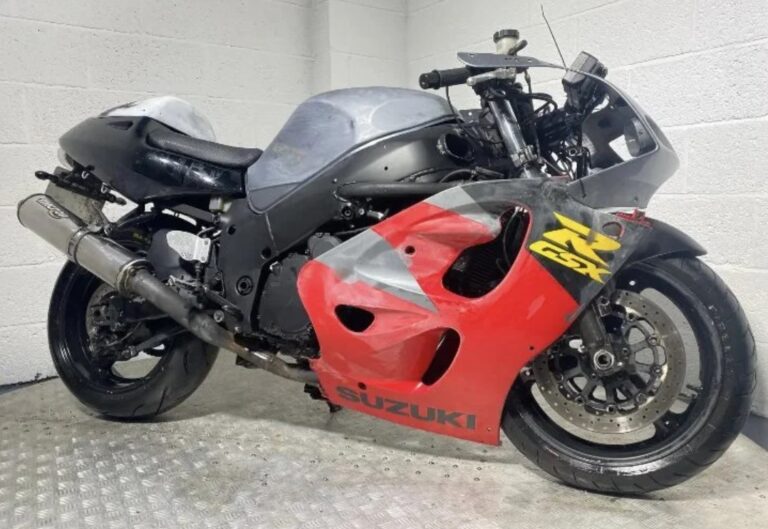Why Peloton Bike Making Noise When Pedaling? Explained
Exploring the issue of “Why Peloton Bike Making Noise When Pedaling?” unveils a common concern among fitness enthusiasts. This phenomenon can disrupt the seamless and immersive workout experience Peloton is known for. Identifying the causes and implementing effective solutions ensures the longevity and performance of your Peloton bike, making every ride smooth and enjoyable.
Key Takeaways
- Identifying common causes of noise in Peloton bikes.
- Step-by-step guide on troubleshooting and fixing the issue.
- The importance of regular maintenance to prevent noise and ensure durability.
Why Peloton Bike Making Noise When Pedaling?
The primary reasons your Peloton bike may make noise when pedaling include loose components, the need for lubrication, or wear and tear of moving parts. Addressing these issues through regular maintenance and prompt adjustments can significantly reduce or eliminate the noise.

Common Causes of Noise and Their Solutions
Misaligned or Loose Components
Misaligned or Loose Components can be a primary source of noise. When parts like the flywheel, pedals, or seat are not properly aligned or tightened, they can produce rattling, clicking, or grinding sounds.
- Regular Inspection: Conducting regular checks on these components for any signs of misalignment or looseness can prevent noise.
- Tightening Bolts and Adjustments: Using the appropriate tools to tighten any loose bolts or adjusting the alignment of parts can significantly reduce or eliminate noise.
Pedal Issues
Pedal Issues are another common culprit. Over time, pedals can become loose or the bearings inside can wear out, leading to noise during pedaling.
- Pedal Inspection: Check the pedals for any looseness or damage. Tightening them with a pedal wrench can often resolve the issue.
- Replacement: If the noise persists, consider replacing the pedals or the bearings might be necessary for a smoother ride.
Maintaining Your Peloton Bike
Regular Maintenance Schedule
Maintaining a Regular Maintenance Schedule is crucial for keeping your Peloton bike in optimal condition and noise-free. This includes cleaning, tightening, and inspecting the bike’s components regularly.
- Cleaning: Keeping the bike clean from dust and sweat can prevent corrosion and wear, which can lead to noise.
- Lubrication: Applying lubricant to moving parts such as the chain or flywheel can reduce friction and noise.
Professional Servicing
Sometimes, despite best efforts, professional servicing may be required to address the noise issue effectively.
- Expert Diagnosis: A professional can provide a thorough inspection and identify any underlying issues that might not be apparent to the user.
- Comprehensive Service: They can also offer a more comprehensive service, including part replacements or adjustments, to ensure your bike operates quietly and efficiently.
Troubleshooting Tips
Step-by-Step Guide
A Step-by-Step troubleshooting guide can help identify and fix the source of noise. Starting from the most common and easily fixable issues, gradually move towards more complex potential problems.
- Check and Tighten Bolts: Begin with checking and tightening all accessible bolts and adjustments.
- Inspect Pedals and Flywheel: Ensure the pedals and flywheel are secure and properly aligned.
When to Seek Professional Help?
Knowing When to Seek Professional Help is essential if the troubleshooting steps do not resolve the noise issue.
- Persistent Noise: If noise persists after all troubleshooting steps have been exhausted, it’s time to consult with a professional.
- Risk of Damage: To avoid causing further damage by attempting DIY fixes, professional advice can be invaluable.
Why Does My Bike Make A Weird Sound When I Pedal?
When your bike emits a weird sound during pedaling, it’s typically a sign of mechanical issues that need attention. These sounds can range from clicking, and squeaking, to grinding noises, each indicating different potential problems.

The most common causes include loose components, such as pedals, crank arms, or seat posts, which can be easily fixed by tightening them. Another reason might be the need for lubrication in parts like the chain or bearings within the pedals.
Misalignment or wear and tear of the bike’s drivetrain components, including the chain, gears, and derailleur, can also lead to unusual noises. Addressing these issues promptly not only ensures a smoother ride but also extends the life of your bike.
Do I Need To Lubricate My Peloton Bike?
Yes, lubricating your Peloton bike is essential for maintaining its performance and longevity. Key components, such as the chain and flywheel, require regular lubrication to operate smoothly and quietly.

The process reduces friction, which can cause wear and tear over time, and also prevents rusting. Peloton recommends using a silicone-based lubricant for the best results, specifically on the bike’s chain.
It’s important to follow the manufacturer’s guidelines on the type and frequency of lubrication to avoid damage. Regular maintenance, including lubrication, ensures that your workouts are not only effective but also enjoyable, free from distracting noises.
How Do I Stop My Peloton From Squeaking?
Stopping your Peloton from squeaking involves a few troubleshooting steps. First, identify the source of the squeak. Common areas include the seat, pedals, and flywheel.
If the squeaking comes from the seat or its post, tightening the fittings or applying a lubricant can often solve the problem. Pedal squeaks may require tightening or lubricating the pedal threads and ensuring they’re correctly installed.
For flywheel-related squeaks, checking for any loose parts and ensuring the bike is on a level surface can help. Additionally, regular cleaning and maintenance, such as wiping down the bike to remove sweat and dust, can prevent squeaks related to debris.
If these steps do not resolve the issue, contacting Peloton support for further assistance or a professional service may be necessary.
Conclusion
In summary, the noise emanating from a Peloton bike during pedaling typically stems from manageable issues like misalignments, the necessity for part lubrication, or the natural wear of components.
Recognizing and rectifying these problems not only enhances your riding experience but also contributes to the durability of the bike. Regular maintenance and a keen ear for any out-of-the-ordinary sounds are crucial in keeping your Peloton bike in prime condition, ensuring countless quiet and effective workouts.
Frequently Asked Questions
Can adjusting the belt tension on my Peloton bike reduce noise?
Yes, if your Peloton bike uses a belt drive system, improper tension can lead to noise. Refer to the Peloton’s user manual for guidance on adjusting belt tension or seek professional assistance to ensure it’s done correctly without causing damage.
Are there any tools I should have on hand to fix noise issues with my Peloton bike?
A basic tool kit including a hex key set, screwdriver, and pedal wrench can handle most adjustments and tightening needs. Additionally, having a lubricant designed for bike maintenance is essential.
Can the surface my Peloton bike is on cause noise?
Yes, an uneven or unstable surface can contribute to noise during use. Ensure your Peloton bike is on a level, stable surface. Consider using a mat specifically designed for exercise equipment to reduce noise and vibration.
What should I do if my Peloton bike’s noise persists after troubleshooting?
If the noise continues despite your troubleshooting efforts, it’s advisable to contact Peloton’s customer service for professional advice or servicing. They can provide specific guidance or arrange for a technician visit if necessary.

Welcome to the exhilarating world of Matt Rex, a professional car racer turned renowned vehicle enthusiast. Immerse yourself in his captivating blog as he shares heart-pounding adventures, expert reviews, and valuable insights on cars, trucks, jets, and more. Fuel your passion for speed and discover the beauty of vehicles through Matt’s engaging stories and meticulous expertise. Join the ever-growing community of enthusiasts who find inspiration and expert advice in Matt Rex’s blog—a digital hub where the thrill of speed meets the pursuit of knowledge.


![Do You Have To Pedal An Electric Bike? [Explained]](https://www.turbochaos.com/wp-content/uploads/2024/02/Do-You-Have-To-Pedal-An-Electric-Bike-768x715.jpg)




![Does James Cameron Ride Dirt Bikes? [Answered]](https://www.turbochaos.com/wp-content/uploads/2024/02/Does-James-Cameron-Ride-Dirt-Bikes-768x627.jpg)